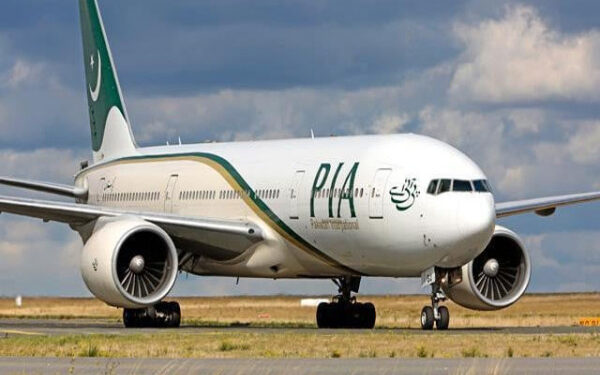Islamabad/London :In a major development for Pakistan’s aviation industry and its diaspora, the United Kingdom has officially lifted its ban on Pakistani airlines, allowing them to apply for flight operations once again. This breakthrough was confirmed by British High Commissioner to Pakistan Jane Marriott, who hailed the decision as a significant step in restoring bilateral aviation ties and strengthening the people-to-people connection between the two nations.
This development follows years of negotiations, aviation reforms, and enhanced cooperation between the UK’s Air Safety Committee and the Civil Aviation Authority of Pakistan (PCAA).
UK Removes Pakistan from Air Safety List
High Commissioner Jane Marriott announced that Pakistan has been removed from the UK’s Air Safety List, which had previously barred Pakistani airlines from operating flights directly to the UK. Now, all Pakistani carriers, including the national flag carrier Pakistan International Airlines (PIA), are eligible to apply for individual permissions from the UK Civil Aviation Authority (UK CAA) to resume flight operations.
“I am grateful to both UK and Pakistani aviation experts who worked together to bring Pakistan’s aviation system in line with international safety standards,” said Marriott.
“I look forward to traveling on a Pakistani airline myself to visit family and friends as soon as all necessary administrative processes are completed.”
What Is the UK Air Safety List and Why Was Pakistan Included?
The UK Air Safety List is a register of countries and airlines that do not meet international safety standards as determined by the UK’s independent Air Safety Committee. Airlines from countries on this list are banned from operating in UK airspace until compliance is demonstrated.
Pakistan was added to this list in July 2020, following shocking revelations by then Aviation Minister Ghulam Sarwar Khan, who admitted in the National Assembly that over 30% of Pakistani commercial pilots held ‘dubious’ or ‘fake’ licenses. The disclosure prompted global scrutiny and forced regulators across Europe and beyond to take swift action.
Fallout of the 2020 Pilot License Scandal
The aftermath of the scandal was immediate and far-reaching:
- On July 1, 2020, the European Union Aviation Safety Agency (EASA) suspended the air operations permit of PIA for all flights into Europe for a period of 6 months.
- This suspension was extended indefinitely in April 2021, with European authorities demanding major reforms before any reconsideration.
- Following suit, the UK aviation authorities also banned Pakistani airlines from operating within UK territory.
- The scandal severely damaged Pakistan’s international aviation reputation, resulting in substantial financial losses to PIA and affecting thousands of passengers, especially within the Pakistani diaspora in the UK.
Reforms in Pakistan’s Civil Aviation Authority
To address global concerns and restore confidence, Pakistan’s Civil Aviation Authority undertook a series of major reforms, particularly aimed at improving safety standards and pilot credential verification.
🔧 Key Reforms Implemented:
- Revamp of the pilot licensing system in line with ICAO standards
- Automated digital licensing exam system to prevent manipulation
- Re-evaluation and clearance of pilots previously flagged for license irregularities
- Independent safety audits conducted in collaboration with international partners
- Enhanced training and certification programs for aviation personnel
These efforts culminated in recognition by the UK’s Air Safety Committee, which formally cleared Pakistan of non-compliance, citing marked improvements in air safety governance and oversight.
Next Steps: Airlines Must Secure UK CAA Approvals
Although the UK has lifted its ban, Pakistani airlines will still need to apply for operational clearance from the UK Civil Aviation Authority. This means each carrier, including PIA, Serene Air, Airblue, and others, must:
- Submit applications detailing their aircraft specifications, pilot training programs, and maintenance records
- Undergo inspections and reviews to ensure compliance with UK and international air safety standards
- Obtain Third Country Operator (TCO) authorization to fly within UK airspace
This process may take several weeks to months, depending on administrative efficiency and technical reviews.
Impact on UK-Pakistan Relations and the Pakistani Diaspora
The lifting of the ban is expected to have far-reaching implications for the 1.6 million British citizens of Pakistani origin, many of whom have been eagerly waiting for direct flight services to resume between the two countries.
“There are strong family, business, and cultural ties between the UK and Pakistan,” said Jane Marriott.
“This decision will help reconnect families and communities separated by geography.”
✈️ Benefits Include:
- Resumption of direct flights between major Pakistani cities (Karachi, Lahore, Islamabad) and UK hubs (London, Birmingham, Manchester)
- Easier travel during religious seasons like Hajj and Eid
- Boost in tourism and trade-related travel
- Cost-effective options compared to third-party carriers
Trade Boost and Economic Reconnection
High Commissioner Marriott also emphasized that the decision will strengthen the UK-Pakistan trade partnership, which currently stands at £4.7 billion annually, making the UK Pakistan’s third-largest trade partner.
Restoring direct air connectivity will:
- Facilitate business travel
- Enable smoother cargo and logistics movement
- Support the Pakistani export industry, especially textiles and perishables
EU and EASA Review in Progress
While the UK has moved forward in restoring trust in Pakistan’s aviation sector, the European Union is still reviewing Pakistan’s status. According to previous statements by the CAA, EASA is expected to conduct a final review by the end of 2025.
In September 2024, the Board of Directors of the Civil Aviation Authority (CAA) was informed about the readiness to resume flights, having met technical compliance standards and revamped the pilot license examination system.
All commercial flights into the EU must comply with TCO (Third Country Operator) regulations, introduced in 2016, ensuring that all aircraft meet ICAO’s global safety benchmarks.
PIA’s Position and Strategic Outlook
With the UK ban now lifted, PIA is expected to be the first Pakistani airline to reapply for operational clearance. The airline has long struggled under financial constraints, but the resumption of UK and EU routes could significantly improve its profitability.
In 2019, PIA operated more than 20 direct flights per week to the UK, serving tens of thousands of passengers annually. Reinstating these flights will not only restore revenue streams but also boost customer trust in the national carrier.
Conclusion: A Milestone Achievement for Pakistan’s Aviation Sector
The UK’s decision to remove Pakistan from its Air Safety List is being hailed as a milestone achievement that marks the return of trust and operational capability to Pakistan’s aviation industry. It reflects the successful implementation of reforms, the strengthening of regulatory oversight, and the importance of bilateral cooperation.
As airlines begin the process of seeking approvals and restoring their flight schedules, the development is seen as a win for passengers, airlines, and bilateral relations.

























